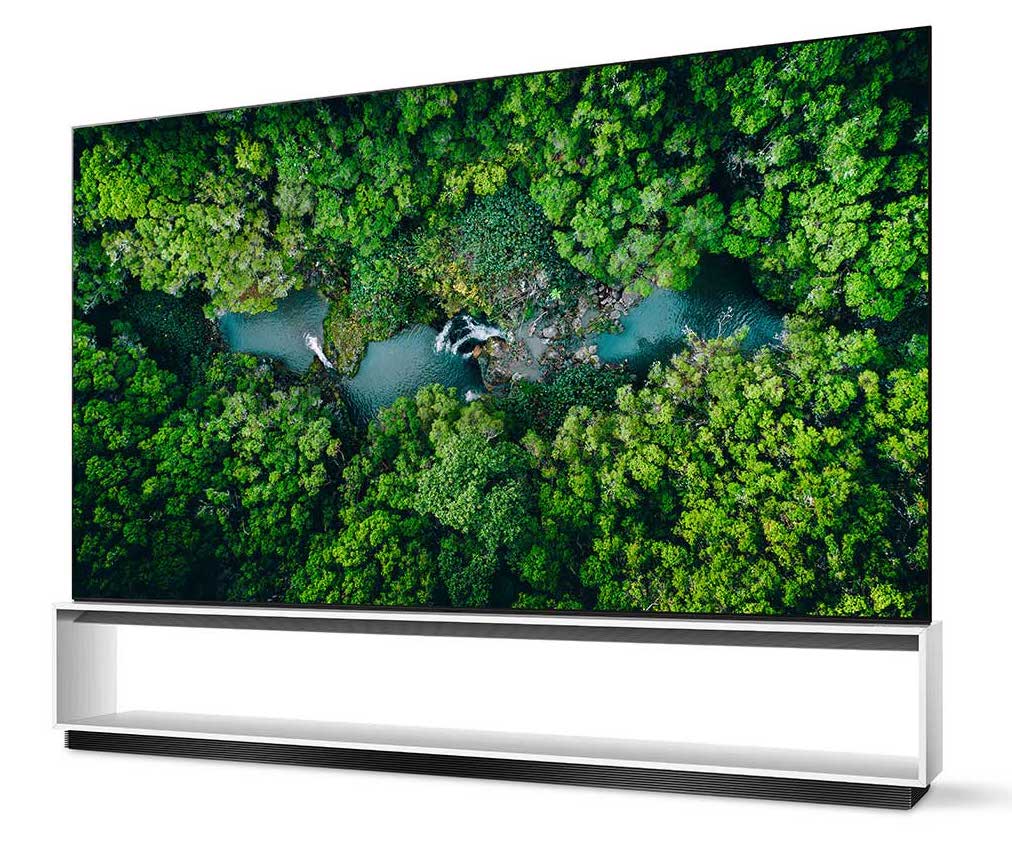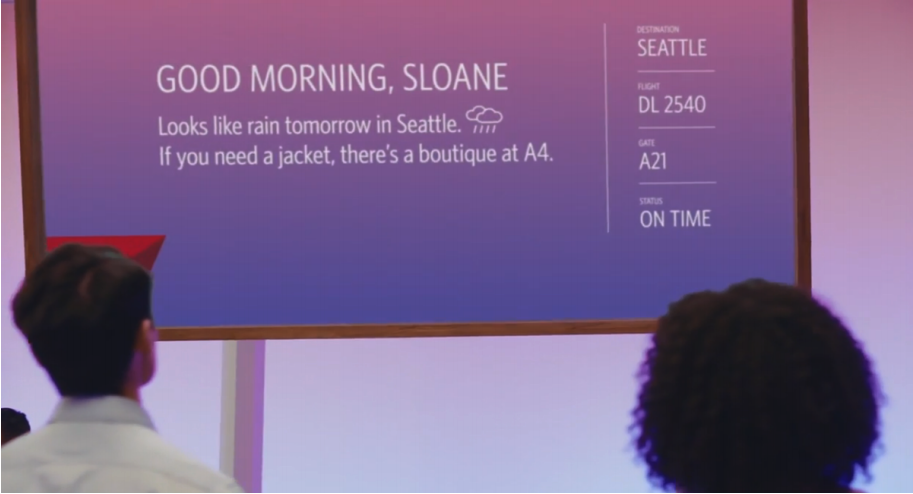
Nitheesh NH
This month, we focus on some of the product launches we saw at CES 2020, including AI-driven technology from Samsung, LG and L’Oréal.
 LG Signature ZX Class 8K Smart OLED TV
LG Signature ZX Class 8K Smart OLED TV
Source: LG[/caption] Delta Air Lines Parallel Reality experience
Delta Air Lines Parallel Reality experience
Source: Delta Air Lines[/caption]
Samsung and LG Unveil Next-Generation 8K TVs
Samsung debuted its next-generation QLED 8K televisions at CES 2020 in Las Vegas. According to the company, the new product line offers an immersive home-entertainment experience with connected features. The flagship Q950TS QLED 8K TV leverages AI upscaling technology that uses machine learning to analyze and identify the characteristics of individual pixels, creating a pristine 8K picture. Q950TS also employs “Adaptive Picture” technology, which enables it to display consistent images, even when brightness levels change in the room. In addition, the TV features an improved Universal Guide that uses AI-based algorithms to recommend channels and services to consumers based on their individual viewing habits and tastes. All of the models in this product line meet the requirements of the Consumer Technology Association’s 8K Ultra HD Display Definition and the 8K Association’s Certified Test Specifications. Similarly, LG unveiled its new ZX range of 8K OLED TVs at CES 2020. Available in 77- and 88-inch models, the televisions employ an upgraded Alpha 9 Gen 3 Processor, which leverages AI technology to upscale and enhance the picture quality, according to the company. The processor is able to distinguish faces on the screen and then fine-tune facial features and sharpen outlines. The ZX range also features a “Filmmaker Mode” which enables the user to remove automatic upscaling and digital enhancement in order to view a picture the way it was created. The new product line will be commercially available in stores and online later this year. [caption id="attachment_102491" align="aligncenter" width="700"] LG Signature ZX Class 8K Smart OLED TV
LG Signature ZX Class 8K Smart OLED TVSource: LG[/caption]
L'Oréal Reveals Perso, an AI-Controlled Dispensing Device
At CES 2020, L'Oréal unveiled Perso, a 6.5-inch AI-driven cosmetics dispensing device. Perso delivers personalized, on-the-spot skincare solutions for users. Perso creates personalized skincare formulas in four steps:- Users can take a photograph of themselves through the Perso app using their smartphone camera. The app then uses the image to analyze the condition of the user’s skin, assessing factors such as moisture content, dark spots, wrinkles and pore visibility.
- Leveraging BreezoMeter geolocation data, the app gathers environmental information relevant to the user’s specific location, such as pollution, weather, humidity, UV index and pollen concentration in the air.
- Users then have the option to input their personal skincare concerns and preferences.
- Taking this data into consideration, the device dispenses a single dose of custom-made serum that comprises a specialized combination of ingredients to suit the individual needs of the user. Perso features a patented motor system that compresses the formula from cartridges at the base of the device to the dispensing tray at the top.
Delta Air Lines Debuts Parallel Reality Airport Experience
Delta Air Lines, in partnership with technology startup Misapplied Sciences, unveiled its Parallel Reality airport experience at CES 2020. Set to be introduced in mid-2020 at Detroit Metropolitan Airport, the technology uses multi-view pixels to show different content to multiple people at the same time on a single digital screen, tailoring the information to each individual. Viewers benefit from seeing only their own personalized, journey-related information (such as boarding time, flight information or updates, directions to the departure gate and the nearest Delta Sky Club), rather than a full list of arriving and departing flights, for example. The opt-in experience does not require special glasses or any kind of augmentation. [caption id="attachment_102492" align="aligncenter" width="700"] Delta Air Lines Parallel Reality experience
Delta Air Lines Parallel Reality experienceSource: Delta Air Lines[/caption]